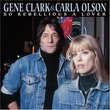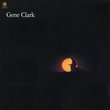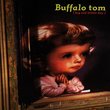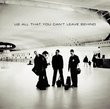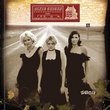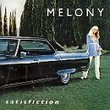| All Artists: Dillard & Clark Title: Fantastic Expedition & Through the Morning Members Wishing: 3 Total Copies: 0 Label: Polygram UK Release Date: 3/8/1999 Album Type: Import, Original recording remastered Genres: Country, Folk, Pop, Rock Styles: Bluegrass, Classic Country, Traditional Folk, Folk Rock, Country Rock Number of Discs: 1 SwapaCD Credits: 1 UPC: 731454097529 |
Search - Dillard & Clark :: Fantastic Expedition & Through the Morning
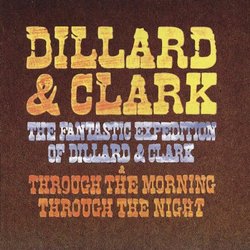 | Dillard & Clark Fantastic Expedition & Through the Morning Genres: Country, Folk, Pop, Rock
Digitally remastered reissue featuring all of the known A&M recordings by this pioneering country rock duo comprised of banjo player/ vocalist Doug Dillard (of early '60s bluegrass outfit The Dillards) & guitarist... more » |
Larger Image |
CD DetailsSynopsis
Album Description Digitally remastered reissue featuring all of the known A&M recordings by this pioneering country rock duo comprised of banjo player/ vocalist Doug Dillard (of early '60s bluegrass outfit The Dillards) & guitarist/ vocalist Gene Clark (one of the founding members of The Byrds). Contains their 1968 debut 'The Fantastic Expedition Of Dillard & Clark', 1969's 'Through The Morning Through The Night' and all four of t he tracks from the two singles they released between the two LPs. 23 tracks total --the first time their entire A&M output has been released on a single CD! 1999 release. Similar CDs
Similarly Requested CDs
|
CD ReviewsRedrawing Musical Boundaries Erik North | San Gabriel, CA USA | 01/11/2009 (5 out of 5 stars) "Put two guys from Missouri, one of whom was a frontman in arguably the greatest folk-rock band there ever was, the other of whom is arguably second only to Earl Scruggs as a bluegrass banjo master, and what you had was a musical pairing that, during the tail end of the 1960s in Southern California, redrew the musical boundaries between folk, bluegrass, country, and rock, and thus helped set the table for many musical movements of the next several decades. What you had was the Fantastic Expedition of Gene Clark and Douglas Dillard. Although their collaboration was a short one, lasting all of two albums (1968's THE FANTASTIC EXPEDITION OF DILLARD AND CLARK; 1969's THROUGH THE MORNING, THROUGH THE NIGHT), those two albums have now been put onto one CD whose contents truly define the term "Eclectic." And while their eclecticism didn't win them much in the way of record sales or even an audience (partly because of them not being too terribly rehearsed in concert), as always in retrospect, they nevertheless accelerated the growth of musical movements that flourish even today.
With help from folks like Chris Hillman and Michael Clarke (Clark's ex-Byrds bandmates), and soon-to-be Eagle Bernie Leadon (no slouch at either guitar or banjo), Dillard and Clark took to not only bringing traditional country and bluegrass to people's attentions through their covers of Flatt and Scruggs' "Get In Line Brother" (here titled "Git In On Brother") and "Roll In My Sweet Baby's Arms", but to come up with a few of their own, in which unusual instruments (like the harpsichord on "The Radio Song") blend in with the traditional banjo, mandolin, and steel guitar sounds of modern country and bluegrass. Clark and Leadon were fruitful songwriting collaborators, too, coming up with at least two significant country-rock setpieces: "Train Leaves Here This Morning" (which Clark sings lead on here, and which Leadon later sang the lead on the Eagles' debut album in 1972); and "She Darked The Sun", done here almost as a traditional Appalachian ballad (Linda Ronstadt would later put her own stamp on it as "He Dark The Sun" on her 1970 album SILK PURSE, with Leadon harmonizing). Less successful are the lead vocals of Dillard's then-girlfriend Donna Washburn on the Osborne Brothers' "Rocky Top"; she sounds much too hillbilly (here's where they could have used Linda's husky Southwestern drawl), though her harmonizing with Clark on "Through The Morning, Through The Night" helps to make up for that lapse. The boys round things up with acoustic folk/country nods to the Everlys ("So Sad [To Watch Good Love Go Bad]"), the Beatles ("Don't Let Me Down"), and even the King himself ("Don't Be Cruel"). The lack of liner notes aside, this pairing of these two landmark country/bluegrass albums is historically significant, not only for what was to come in the immediate future (Eagles), but also what came decades later with Alison Krauss, the New Grass Revival, and even the Dixie Chicks, where bluegrass and country managed to appeal to rock fans by losing only its redneck hayseed image and not its rootsiness. This is highly recommended for anyone with a wildly eclectic musical pallette." |

 Track Listings (23) - Disc #1
Track Listings (23) - Disc #1